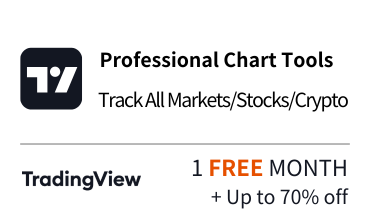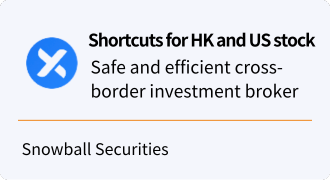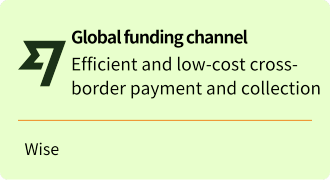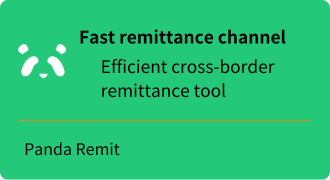U.S. Stock Trading Fees: A Complete Look at Fees, Taxes, and Other Costs
[DISCLAIMER] This article is for educational and informational purposes only and does not constitute investment advice. Readers should consult with qualified financial professionals before making any investment decisions.
When investing in U.S. stocks, transaction costs are a key factor in overall investment returns. As an independent self-publisher specializing in quantitative finance and IT, I understand the importance of keeping trading costs under reasonable control for investors. Through this article, I hope to help you gain a deeper understanding of the various types of fees involved in trading US stocks, including commissions, taxes, and other hidden costs that may affect your investment. From there, you can take the road less traveled and maximize your returns.
Ⅰ. Commissions: Opportunities and Pitfalls in the Age of Zero Commissions

Commission fees for trading U.S. stocks are one of the biggest costs for investors, which can be a significant cost for frequent traders. However, in recent years, as competition has intensified, more and more brokerages have begun to offer zero-commission trading. This trend has lowered the barrier to entry and attracted a large number of novice investors. Even with zero-commission platforms, it's important to scrutinize their rate schedules to make sure there are no hidden transaction costs.
Zero-commission trading ostensibly reduces direct transaction costs for investors, but that doesn't mean there are no hidden fees. Some brokers may make up for commission profits by widening bid/ask spreads, selling order flow, or charging other fees. Therefore, investors still need to be aware of other potential costs when choosing a zero-commission brokerage. Personally, I prefer to pay explicit commissions for transparently priced direct trading services.
Ⅱ. Taxes: What U.S. Stock Investors Need to Know About Taxes
Taxes are a cost you have to deal with when investing in US stocks. According to the US tax policy, capital gains tax and dividend tax are the main tax items. In addition, as a foreign investor, you may also face U.S. withholding tax, which can directly affect your investment returns. Therefore, understanding and complying with tax rules can help you avoid unnecessary tax expenses.
2.1 Capital Gains Tax
When you make a profit on the sale of a stock, that gain is subject to capital gains tax. The tax rate varies depending on the length of holding and the amount received. Long-term capital gains tax (held for more than one year) is usually at a lower rate than short-term capital gains tax (held for less than one year).
As an international investor, I recommend that you make sure you are aware of the tax agreements between your country and the United States when investing in U.S. stocks. Many countries have double taxation agreements that can avoid or minimize your paying taxes in both the U.S. and your home country. Consulting a tax professional is the best way to ensure compliance with local tax laws.
Under U.S. Internal Revenue Code, the U.S. generally taxes capital gains, especially on transactions involving real estate or equity in a business. For non-U.S. tax residents (including Chinese investors), the U.S. generally does not tax capital gains (e.g., spread income from buying and selling stocks) in the U.S. securities market. This means that investors from Mainland China, Taiwan, Hong Kong, and Macau will generally not be subject to U.S. tax on capital gains from their U.S. equity investments, but will be required to file a Form W-8BEN declaring that they are non-U.S. tax residents.
2.2 Dividend Tax
Dividend income is also taxable to investors who hold stocks. In the U.S., the tax on dividends is usually fixed at a rate of 30%, regardless of the length of holding. If you are from a country that has a tax treaty with the U.S., you can apply for a reduced tax rate. Note: Hong Kong, Macau and Taiwan, China all have a 30% dividend tax, which is deducted directly by the brokerage firm at the time of distribution.
Under the U.S.-China Tax Treaty, the dividend withholding tax rate for mainland Chinese investors can be reduced to 10% (30% may be charged for a few stocks in a special corporate framework) if they qualify. It is deducted directly by the brokerage firm at the time of distribution.
For more information about withholding tax policies, please refer to "US Stock Withholding Tax Guide: How Can Overseas Investors Legally Save Taxes?"
Ⅲ. Other costs: Hidden costs cannot be ignored

3.1 Exchange Rate Costs
As an international investor, you may need to convert your home currency to US dollars to trade US stocks. This process incurs exchange rate costs, and fluctuations in the exchange rate may affect your return on investment. Many brokers charge foreign exchange conversion fees, which can add up to a significant expense when trading frequently.
When choosing a brokerage firm, it is important to understand their foreign exchange conversion rates and related policies. If your primary investment funds are in currencies other than the U.S. dollar, consider looking for brokers that have lower FX conversion fees or support multi-currency accounts.
3.2 Account Maintenance Fees
Some brokerages charge account maintenance fees for accounts with low balances or inactive trading. These types of fees, while uncommon, can have an impact on overall returns for small investors.
Before opening a U.S. stock account, read the brokerage firm's fee terms carefully to avoid unnecessary fees. Choosing brokerage firms that do not have account maintenance fees or have lenient terms can help you better control your costs.
Ⅳ. How to optimize trading costs
After understanding the above types of fees, how to optimize these costs in practice? First, choosing a brokerage platform that suits your trading style is key. Secondly, make a reasonable trading plan to avoid frequent trading, thus reducing the total cost. Finally, regularly review your trading costs and investment returns to ensure that your overall strategy meets expectations.
As a quantitative finance enthusiast, I often use data and models to analyze the cost-effectiveness of different investment strategies. By planning the frequency of trades and choosing the right investment tools, investors can effectively reduce costs and increase net returns. It's not just a matter of saving a few commissions, it's a key factor that affects investment returns in the long run.
Thoughts
In my career, I have seen many investors suffer losses because they overlooked these hidden costs. By fully understanding and optimizing the costs involved when choosing a brokerage firm, you can gain a greater advantage in a competitive market. Investing in the U.S. stock market is no easy task, but with key expense management tips, you can maximize your return on investment.
If you have any questions about US stock trading fees or choosing a brokerage firm, please feel free to leave a comment in the group and I will help you on your financial journey.







